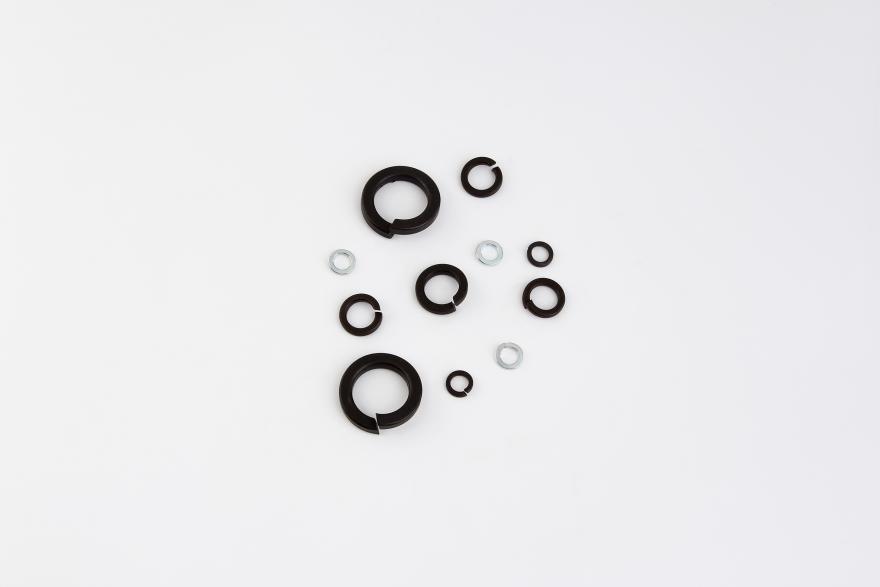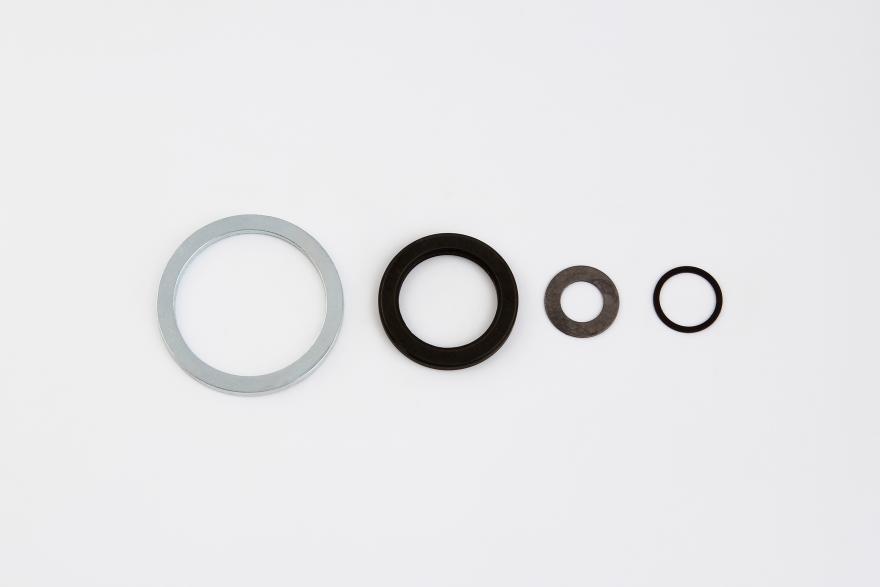Washers play a crucial role in bolted connections by distributing load, preventing loosening, and providing sealing. However, improper washer selection—such as material mismatch, incorrect sizing, or insufficient hardness—can lead to the following issues:
Uneven preload distribution, causing localized stress concentration.
Failure of anti-loosening function, leading to bolt loosening under vibration or load.
Decreased sealing performance, resulting in leakage or corrosion.
In engineering practice, improper washer selection is considered one of the common causes of assembly failure. This is particularly evident in high-load, high-vibration applications such as wind power, automotive, and construction machinery, where failures due to incorrect washer selection are frequently reported.
Spring Washers

Many people habitually use spring washers (lock washers) for anti-loosening purposes, but they are not a universal solution. In reality, spring washers cannot prevent preload loss; they only generate a weak reactive force after loosening occurs, which does not address the root cause. As early as 1969, the Society of Automotive Engineers (SAE) recommended against using spring washers in critical applications or with Grade 8 (ISO 10.9) high-strength bolts.
In low-preload, non-continuous vibration environments, if a spring washer meets the relevant standard requirements, it may be sufficient for general mechanical connections. However, improper selection of spring washers can lead to severe consequences. For example, using a spring washer with insufficient hardness in a bolted joint can cause metal fatigue failure under prolonged cyclic loading, posing a safety hazard.
In heavy-load or high-frequency vibration applications (such as the undercarriage mechanisms of construction machinery), relying solely on spring washers is inadequate to maintain preload. Instead, more reliable methods, such as axial preload and flange-bearing surfaces, are recommended.
Flat Washers

Improper selection of flat washers can also lead to assembly failures. For instance, USS washers generally have an oversized inner diameter, which can result in insufficient bolt head support and uneven preload distribution. Additionally, soft annealed steel washers may deform under bolt head pressure, losing their support function.
The correct approach is to match the washer type with the bolt strength. For example, hardened steel washers should be used with ISO 8.8/10.9 grade bolts to ensure even load distribution. However, washer specifications in China vary significantly, and requirements may differ between different revisions of the same standard. Engineers often make incorrect selections due to a lack of information, increasing the risk of failure.



